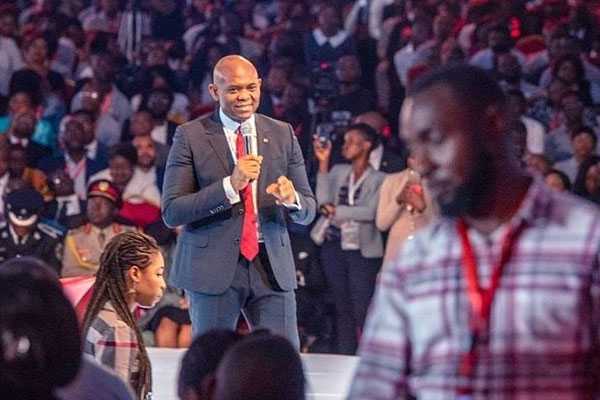Programme unleashes Africa’s entrepreneurs
Launched in 2015, the Tony Elumelu Foundation (TEF) Entrepreneurship Programme is the largest African philan- thropic initiative devoted to entrepreneurship. The pro- gramme represents a 10-year, $100 million commitment to identify, grow and support 10 000 African entrepreneurs, em- powering them to create a mil- lion jobs and add $10 billion in revenues to Africa’s economy.
The programme is inspired by three guiding principles, the inclusive economic philosophy of Africapitalism, based on the belief that a vibrant African-led private sector is the key to un- locking Africa’s economic and social potential, the commit- ment to drive African economic growth through the fostering of African entrepreneurship; and the mission to institutionalize luck and create an environment where home-grown Pan-African companies in various sectors can flourish.
“We are already seeing the results,” says the founder and Chairman of the Foundation, Tony Elumelu. “Our entrepreneurs have gen- erated over USD 52 million in revenue, an increase from just over $18 million recorded before the programme, and they have created almost 12 000 jobs so far.” Now in its fourth year, TEF Entrepreneurship Programme has empowered 4 470 entrepre- neurs, 4 000 funded directly by the Foundation and 470 funded by Partners of the Foundation.
This year, 51 African countries were represented in the batch of selected 1 000 entrepreneurs, with Nigeria comprising of 26 percent. Western Africa ac- counted for 423 entrepreneurs from 16 countries, Eastern Af- rica had 392 entrepreneurs from 16 countries, 86 entrepreneurs were from Central Africa, 74 from Southern Africa - 29 from Botswana and 25 entrepreneurs were drawn from Northern Africa.
The Tony Elumelu Foun- dation recognizes that one of the key challenges facing Africa’s entrepreneurs is the state of the overall enabling environment in which they operate. “Those of us who have achieved success know that we have had a helping hand - luck- we need to create the platforms to institutionalise and democratise that luck,” Elu- melu said last week at the fourth annual TEF Entrepreneurship Forum in Lagos.
In addition to providing direct support to selected African entrepreneurs, the Foundation’s policy research and advocacy arm, the Africapi- talism Institute is engaging the 20 000 members of the Tony Elumelu Entrepreneurship Pro- gramme Network to ascertain key challenges they face, and develop solutions to improve their competitiveness.
THE SURVEY
The Institute found out in their recent surveys on African Entrepreneurship that start-up capital remains the greatest chal- lenge to entrepreneurs across the region. When asked what can be done to help entrepreneurs gain access to capital, the top sugges- tion from accelerators surveyed was that banks and other formal lenders should reduce the col- lateral requirements.
Operating costs was another limitation, with 53 percent of respondents indicating that it was not easy to obtain the necessary machinery, equipment, technology or raw materials needed to operate, citing the high cost of land and office space as the primary cost concern.
The second costliest operating expense is electric power, with 73 percent of re- spondents saying that govern- ments could incentivise small businesses by reducing power outages. With respect to the legal system and the resolution of contract disputes, 82 percent of respondents said that the lengthy time to resolve disputes was the biggest problem, and 70 percent cited corruption in the judicial system as a concern.
Respondents also indicated that the cost of registration and the difficulty posed by the overall number and variety of govern- ment department involved in obtaining required permission was very problematic. More than half said that compliance with government regulations and operating requirements once the firm is established was only slightly burdensome or not burdensome at all.
Fifty-eight percent of entrepreneurs said that it is not at all easy to start a business in their country, due to a variety of factors including access to capital, which is espe- cially important due to the high cost of core inputs. Sixty-five percent of entrepreneurs said that the availability of govern- ment incentives to, for example, reduce their tax burden and lower the cost of inputs such as land and capital was very important.
Ninety percent of responding entrepreneurs said they were confident they will be able to find employees with the right skills for their businesses. However, although entrepreneurs said skilled labour is available, 62 percent stated that the high cost of employing them was prohibitive.
The Tony Elumelu Foundation envisions unlocking obstacles that Africa’s entrepreneurs face as they grow their start-ups into small to medium enterprises (SMEs), their SMEs into national growth companies, and their national growth companies into African multinationals. “We decided that national boundaries should not be a barrier in democratis- ing luck. These young Africans justify our confidence, our hope & most importantly, our trust. We realise that the more we do, the more we still need to do,” Elumelu said.






